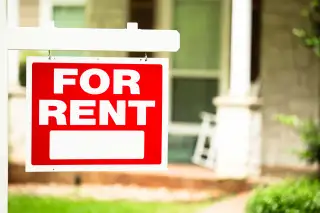Rent vs. Buy? The New Tax Law Changes the Math on When to Become a Homeowner

Congress just passed the GOP tax law, the largest tax overhaul in a generation, and it wasn't just about cutting rates. The new tax law also changed the math millions of Americans face each year when they consider buying their first home.
"For many, tax reform will make renting more attractive than owning a home," write Laurie Goodman and Edward Golding, researchers at the Urban Institute, a Washington think tank.
The Tax Cuts and Jobs Act, signed by President Donald Trump in December, doubles standard deduction to $12,000 ($24,000 for couples) and limits several tax write-offs long favored by homeowners, adding a $10,000 cap on the state and local tax deduction and a lower $750,000 limit on loan principle for the mortgage interest deduction. Taken together, the changes should leave most homeowners with a lower tax bill overall. What is different is that taxpayers will no longer need to own homes to claim lucrative tax savings. In other words, the financial advantage of owning rather than renting your own home could diminish or disappear for millions of Americans.
To illustrate the point, the Urban Institute calculated what it calls the "breakeven rent" — the point above which it makes more sense to own — for families at different income levels before and after the bill goes into effect.
For a solidly middle-class family of three making $50,000, the tax law made little difference, in large part because these taxpayers would likely have elected to take the standard deduction no matter what. But for a somewhat wealthier upper-middle class family, making $75,000, the new tax law could tip the balance in favor of renting. Under the old rules buying a home would have become more financially advantageous when their monthly rent exceeded $893, according to the Urban Institutes calculation. But under the new tax law that number climbs 14% to $1,017.
For wealthy families the difference can be even more dramatic. For one making $300,000 the breakeven rent jumps 32% from $2,757 a month to $3,631.
Does this mean the largest group of renters in 50 years will just continue to grow under this new tax law? Not necessarily, the report concludes. Renters who are happy with their places will have fewer incentives to sign a mortgage, the analysis says. Those with other reasons for buying a house — like protection against inflation and stability — will likely still follow through.
"Nevertheless," the report adds, "the effect of these changes may increase, possibly resulting in a slightly lower homeownership rate as more households choose to rent."